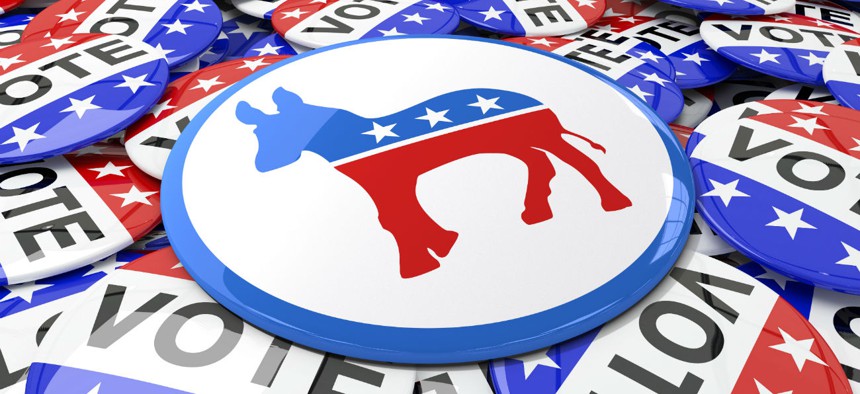
By vectorfusionart / Shutterstock.com
Special Counsel Temporarily Suspends Knowing Hatch Act Violators Without Pay
The two Defense Logistics Agency employees were aware of the law limiting political activity and in one case had received extensive training.
The Office of Special Counsel on Friday announced it had imposed “significant discipline” on two federal employees found to have violated the Hatch Act despite being aware of the law’s prohibition on certain political activities while on the job.
The two career employees from the Defense Logistics Agency, a combat support agency within the Defense Department, were temporarily suspended without pay.
“With election season drawing near, it is critical that federal employees understand and abide by their Hatch Act obligations,” Special Counsel Henry Kerner said in a press release. “As demonstrated in these two cases, there are significant repercussions for federal employees who violate the Hatch Act.”
One employee sent partisan emails and made political posts on Facebook while at work. Additionally, he used Facebook to solicit political contributions about two dozen times. The employee confessed during OSC’s investigation that he was aware of the Hatch Act and his supervisor spoke to him about the Hatch Act before he engaged in the prohibited activity. This employee agreed to a 90-day suspension without pay.
The other employee displayed “Vote Republican” in a PowerPoint presentation he gave while at work. “The employee had received extensive Hatch Act training,” OSC said, “and was explicitly told prior to giving the presentation that certain images he planned to use, including the ‘Vote Republican’ image, would be problematic.” He agreed to a 30-day suspension without pay.
According to an online survey of more than 400 federal employees in July by Government Executive and the Government Business Council, 70% said federal employees are held to a higher standard than White House staff when it comes to Hatch Act enforcement. However, 82% of respondents believed “moderately” or more strongly that the act is fairly enforced at their agencies and 80% said their colleagues respect the act “often” or “always.”







